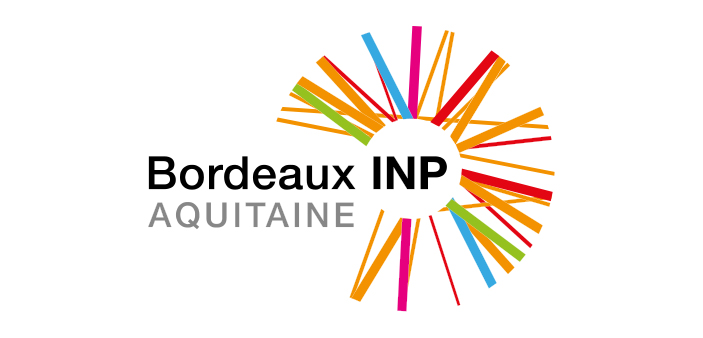
BORDEAUX-INP
The Bordeaux INP Nouvelle-Aquitaine group brings together 7 public engineering schools with 2,800 students and offers 17 engineering specialities, 5 of which are offered through apprenticeships. The school offers high-level initial, continuing and sandwich courses, which are continually evolving to meet the needs of companies as effectively as possible.
Bordeaux INP's courses are supported by 10 research laboratories. In the field of printed electronics, Bordeaux-INP relies on the strong skills of researchers and teacher-researchers from the IMS (Integration of Materials into Systems), LCPO (Organic Component Chemistry Laboratory) and ISM (Institute of Molecular Sciences) laboratories.
ENSCBP-Bordeaux INP
Courses in printed electronics are mainly taught at the Ecole Nationale Supérieure de Chimie, de Biologie et de Physique de Bordeaux (ENSCBP), a member of Bordeaux INP. ENSCBP offers five engineering programmes developed in partnership with the business world, two of which are traditional (Chemistry-Physical Engineering and Food Processing-Biological Engineering) and three of which are apprenticeships (Materials, Composite Materials-Mechanics and Food Processing-Industrial Engineering).
Food Processing - Industrial Engineering). The school graduates around 200 engineers a year in the chemical, environmental, energy, aeronautical, agri-food, cosmetics and pharmaceutical sectors.
The ENSCBP community includes 600 engineering students, 60 teaching and research staff, 150 industrial contributors and more than 4,000 graduates. Its courses are supported by 8 research laboratories of excellence attached to the CNRS or the INRA.
A pioneering school in sustainable development and social responsibility, ENSCBP is one of the few French engineering schools to have been awarded three Quality, Safety and Environment certifications since 2005.
ENSCBP also offers a range of continuing education courses for companies and institutions wishing to benefit from its areas of expertise.
Organic electronics
at Bordeaux-INP
ENSCBP provides around 100 hours of teaching in the field of printed electronics. During the 3rd year specialisation modules "Energy Storage and Conversion" and "Nano and Microtechnologies", a large amount of time is devoted to teaching organic electronics ( 50h). During the 2nd year multi-disciplinary projects, engineering students carry out 48-hour projects on organic components, the aim being to manufacture and characterise a component (light-emitting diode, solar cell or transistor), involving all the manufacturing stages from organic chemistry to component physics, including inorganic chemistry and spectroscopy.
The experimental part of the teaching is carried out on specific equipment, in partnership with the Material System Integration laboratory (IMS). This plant has been funded by the Aquitaine Region, the CNFM (Coordination Nationale pour la Formation en Microélectronique et en Nanotechnologies) and Bordeaux-INP. It enables light-emitting diodes, solar cells and organic transistors to be manufactured using wet or dry processes.
The course also includes two long internships, lasting 5 months (from mid-June to mid-November) and 6 months (from the end of March to the end of September). Every year, a number of students undertake these internships in the field of printed electronics, as their skills are well suited to this area.
A 10-hour theoretical and practical teaching module on organic electronics is offered at the Ecole Nationale Supérieure d'Électronique, Informatique, Télécommunications, Mathématique et Mécanique de Bordeaux (ENSEIRB-MATMECA), also a member of the INP.
109 avenue Roul
33400 TALENCE
Tél. : 05 57 00 67 00
Contact
Laurence VIGNAU
Site internet
https://www.bordeaux-inp.fr/fr
